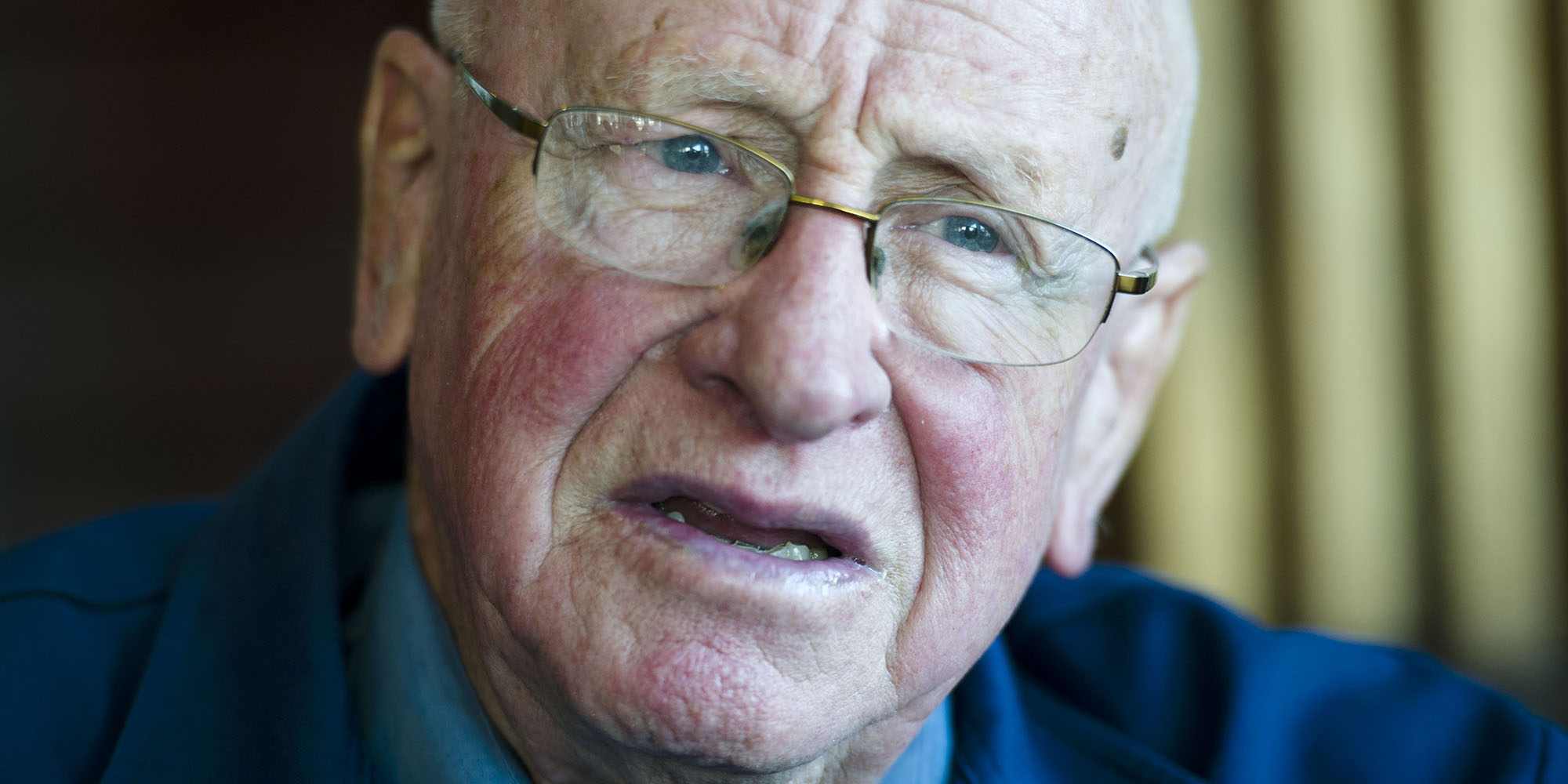Adriaan Vlok was the only former apartheid-era Cabinet minister who applied for amnesty for some, but not all of his involvement in criminal acts. But like his fellow Cabinet members, he did not apologise during the TRC process. He was, however, granted amnesty in 1999 by the TRC after he testified about his role in apartheid brutality.

Former apartheid minister of law and order Adriaan Vlok during an interview on 30 June 2015 in Pretoria. (Photo: Gallo Images / Rapport / Deaan Vivier)
Then, in August 2006, Vlok made the gesture of washing the feet of his erstwhile political opponent, Reverend Frank Chikane. The feet washing reignited the debate on whether white South Africans have done enough to apologise for the past. It also sparked a debate on the gesture of apology itself.
Vlok washed the feet of Reverend Frank Chikane in a private meeting on 3 August 2006. He arrived at the Union Buildings in Pretoria with a towel, a bar of soap and a Bible. He asked to see Chikane, who then held the position of director-general in the Presidency. Vlok apologised to Chikane and quoted a verse from the Bible. Chikane was but one of scores of apartheid victims wronged by Vlok.
Vlok was accused of attempting to kill Chikane by dousing his clothes with poison while he was travelling in the United States in 1989. Vlok saw Chikane as the embodiment of all the people he had wronged and Chikane said he accepted the apology. Vlok said he had hoped that Chikane would accept the “small gesture” of washing his feet, in his bid to reconcile with God and his conscience. The fact that his apology exacted a personal price made his gesture more credible.
In its response to the foot washing, the South African Council of Churches (SACC) said that it accepted the apology, but that it was no substitute for full disclosure, the requirement set by the Amnesty Committee of the TRC. The general secretary of the SACC, Eddie Makue, urged Vlok and “others with knowledge of these crimes” to show their repentance by apologising to victims.
Visit Daily Maverick’s home page for more news, analysis and investigations
At the time some speculated that Vlok’s timing was strategic: he apologised shortly before the National Prosecuting Authority (NPA) announced its intention of prosecuting those who had not applied for amnesty, something that the NPA never followed through on. A few days after the apology, journalist Deborah Patta interviewed Vlok on the television programme Third Degree. Members of the public were invited to participate in the television debate by sending SMS (text) messages. The responses ranged from very positive to very negative. Patta concluded by stating that, at least, by appearing on television and engaging in public debate, Vlok had shown that he had the “courage of his convictions”.
Vlok’s death coincides with a new wave of official apologies and non-apologies. In December the Dutch Prime Minister apologised for 250 years of slavery. And Germany has again refused to yield to Poland’s demands for apology and reparations for World War 2 atrocities committed against the Poles.
During the TRC process, only fragments of the truth were uncovered. If apology is received positively, instead of being the subject of mockery, would others not be encouraged to come forward and disclose more about the past?
Those who describe Vlok’s actions as being beyond atonement miss the essential point that forgiveness is not a rational act. Forgiveness only makes sense in the context of actions that may seem unforgivable. For there to be something to forgive, there must be unexcused, unjustified and unacceptable wrongdoing. This has led the French philosopher Derrida to state that only the unforgivable can be forgiven and that forgiveness is essentially paradoxical.
For an apology to have the desired result, that of forgiveness, both parties have to depart from a similar normative starting point. Chikane, understanding the religious significance of Vlok’s gesture, immediately accepted the foot-washing gesture.
What do the reactions on Twitter say about the public mood? The anger displayed following Vlok’s death transcends the issue of Vlok’s complicity in apartheid. South Africans are angry. In moments like these, the anger that spreads through the body politic with viral intensity could have more to do with a feeling of abandonment among apartheid victims who never tasted the fruits of liberation. For these victims, there is no “better life for all”. DM


















 Become an Insider
Become an Insider
If we refuse to forgive others do we accept we can’t rationally be forgiven either as part of the deal? The alternative is for the unforgiving to be self righteous and often consumed by hatreds they won’t let go. By forgiving someone we find freedom for ourselves. An uncomfortable bit of enlightened self interest perhaps. I still think punishments for crimes is appropriate. Vlok was so contrite he didn’t only wash Chikanes feet he laboured long and hard among the poor.
Forgiveness only flows from the victim to the to the individual who caused the harm. It releases the victim from hate, revenge and many other negative emotions that float around in their head. Unforgiveness tends to undermine all the relationships of the individual and limits their ability to be human. When I forgive another the main benefit is to me. Apologies can be demanded and given but they of little consequence compared to the power of forgiveness. Some of our political leaders need to forgive, then there is some hope they may be able to lead.
“The anger displayed following Vlok’s death transcends the issue of Vlok’s complicity in apartheid. South Africans are angry. In moments like these, the anger that spreads through the body politic with viral intensity could have more to do with a feeling of abandonment among apartheid victims who never tasted the fruits of liberation. For these victims, there is no “better life for all”. “Repeat it and much, much, louder. Please.